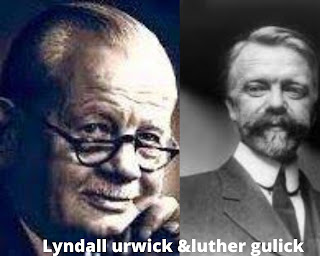HUMAN RELATION THEORY: - (ELTON MAYO)
Up to 1927 production started decrease
through all the principles & theories advocated by the Taylor and other
behavioural scholars applied. It became the big problem as the management was
getting very less benefit.
Production decreases
Elton mayo was Para psychologist.
Mayo was conducting a seminar and
giving very new idea related to H.R.
The textile mill called mayo to
provide remedy.
Mayo and his team observed the
problem in the mill. And found that fatigue due to which the workers were
leaving the job.
SOLUTION:-
REST
Supervisor
gets annoyed they were not getting rest.
Solution:-
switch of the machines during break.
PRODUCTION INCREASES
Problem – production decrease.
Manager of the company was retired colonel. (Disciplined, very careful
and caring)
He also applied all the principles
known up to them but result was low production. Then mayo was called by the
manager. Mayo was conducting a series of experiment in the company.
The 1st experiment was:-
GREAT ILLUMINATION: - To examine whether work condition effect the production
or not. Two groups of 6-6 girls were made and were put separated. One group got
always stable and good light. Other got fluctuated and poor light. But both
produce more. Finally they concluded that work condition do not affect the
production.
RELAY ASSEmbly:- Two group of 5-5
girls.
Both produce more.
BANK WIRING ROOM EXPERIMENT:-
The purpose of the next study was to
find out how payment incentives would affect productivity. The surprising
result was that productivity actually decreased. Worker apparently had become
suspicious that their productivity may have been boosted to justify firing some
of the workers. Later on the study was conducted by Elton mayo and w. Lloyd worker between 1931 and 1932 on a group of
fourteen mans who put together telephone switching equipment. The researcher
found that although the workers were paid according to individual productivity.
Productivity decreases. Because the men were afraid that the company would
lower the base rate. Detailed observation of the men revealed. The existence of
informal groups or “cliques” within the formal groups. These cliques developed
informal rule of behaviour as well as mechanism to enforce them. The cliques
served to control group members and to manage bosses; when bosses asked
questions, clique members gave the same responses, even if they were UN true.
This result shows that workers were more responsive to the social force of
their peer groups than to control and the incentives of management.
PERSONAL OBSERVATION /INTERVIEWS:-
Questions
They concluded that worker followed the social norms divided
by the worker and social group. These
social norms were as follows.
1) Rate buster:- one who produce more than the
social norm.
2) Chiseler:- the one who produces less than
the norm.
3) Squaller :- the one who complain the
management about his peer.
No one should not act officious.
RESULT:- in this way mayo and his team concluded that
human being are the social man they do not
follow the pre-determined rule and regulation rather social norms.
Organisation
must be completely informal can be motivated by the social & psychological
satisfaction. They are not the instrument of production.
